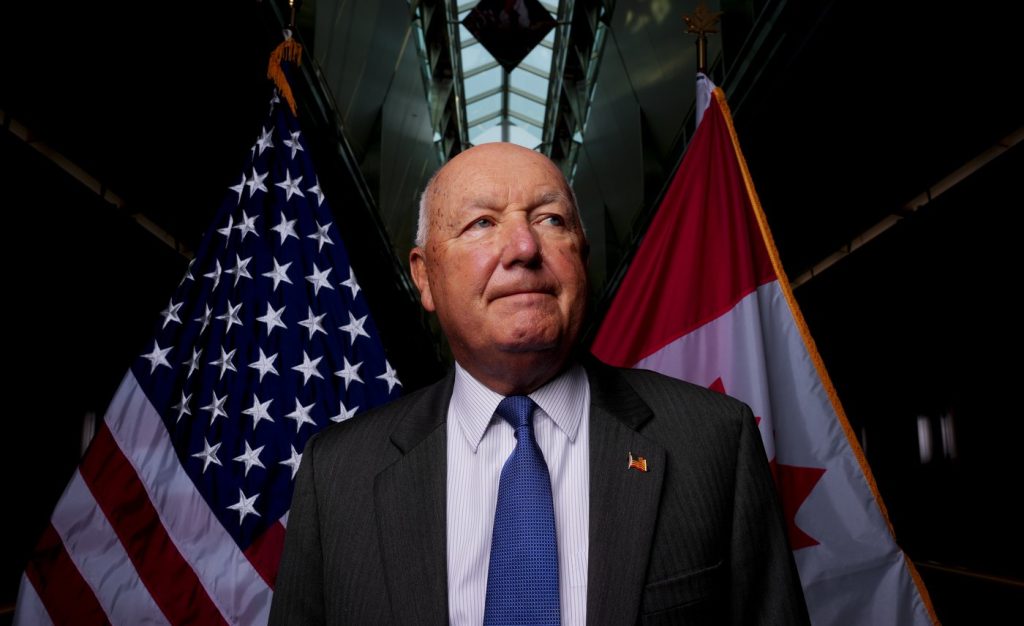The U.S. Ambassador to Canada, Pete Hoekstra, has responded to recent travel advisories issued by Ottawa regarding Canadians traveling to the United States. In an interview with The Canadian Press, Hoekstra emphasized that the U.S. does not routinely search electronic devices at the border and indicated that experiences of Canadians facing difficulties are isolated incidents rather than a systematic issue.
In April 2025, the Canadian government updated its travel advice, cautioning Canadians about the potential for detention and scrutiny at U.S. border crossings. The advisory specifically mentioned the possibility of scrutiny of electronic devices, which has drawn concerns and reports from Canadians experiencing increased examination and delays upon entering the U.S.
Hoekstra rejected claims that device searches at the border are common, asserting that the fears are unfounded. He asserted, “Coming to the U.S., that’s a decision for the Canadians to make. Searching devices and all of that is not a well-founded fear. We don’t do that. America is a welcoming place.” This statement aims to reassure Canadian travelers and encourage their visits to the U.S.
Despite Hoekstra's insistence, some American tourists have also reported unwelcoming experiences when entering Canada. He shared that American travelers have relayed feelings of being received poorly at Canadian customs. When asked about complaints from American citizens regarding their treatment by the Canada Border Services Agency (CBSA), Hoekstra acknowledged that there are indeed consular cases and suggested that some incidents might be isolated, possibly attributed to individual border agents having a particularly bad day.
In response, the CBSA reaffirmed its commitment to treating all travelers equally, adhering to a code of conduct that emphasizes integrity, respect, and professionalism. CBSA spokesperson Karine Martel stated that complaints of mistreatment are taken seriously and investigated thoroughly, reinforcing the agency's dedication to respecting all individuals at the border.
Hoekstra maintained that the decision to travel to the U.S. lies with the individual, remarking that those who choose not to cross the border are potentially missing out on valuable experiences. He highlighted the attractions and opportunities available in the U.S. to encourage Canadian travelers to visit.
Notable media figures, like CNN journalist Christiane Amanpour, have shared their cautious approaches to traveling to the U.S., including using a "burner phone" to protect their personal information. However, Amanpour recounted a warm reception once she arrived, suggesting that not all travelers experience the same scrutiny or challenges.
The relationship between travel patterns and perceptions has been strained, particularly as airlines have reduced flight frequencies between Canada and the U.S., with Flight Centre Travel Group Canada reporting a nearly 40% decline in year-over-year flights as of February 2025. A survey conducted by Leger Marketing for the Association for Canadian Studies found that 52% of respondents believe it is no longer safe for all Canadians to travel to the U.S., which indicates growing apprehension among the Canadian populace regarding travel to their southern neighbor.
Further complicating the travel landscape, LGBTQ+ groups have chosen not to participate in World Pride events in Washington, D.C., or United Nations events in New York due to fears of scrutiny at the border, particularly in light of the Trump administration’s rollback of protections for transgender and nonbinary individuals.
This array of concerns reflects broader anxieties regarding cross-border interactions between Canada and the U.S. as travelers consider their safety and welcome in each other’s countries.











